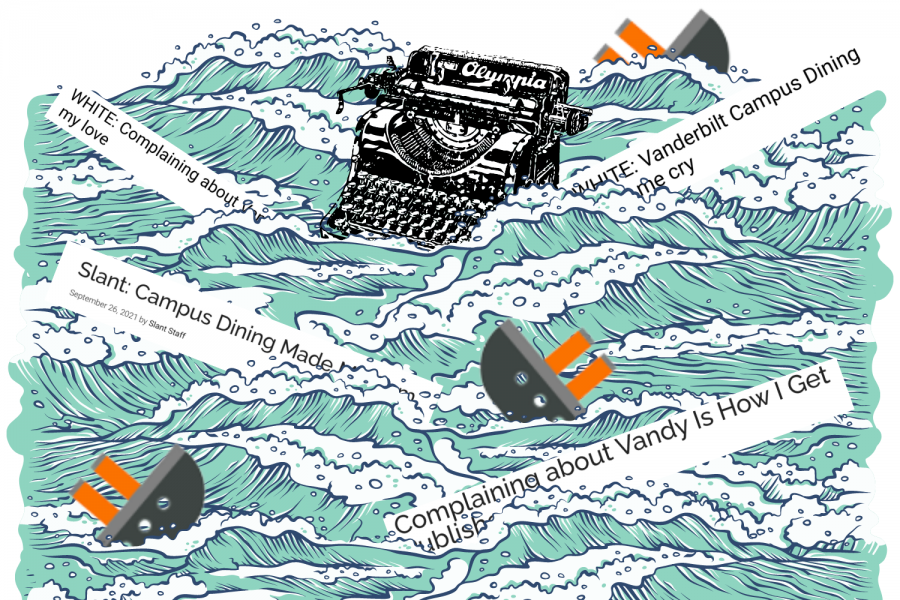
I love The Slant.
As Vanderbilt’s oldest (and only) satire publication, you can find them hosting sub-par standup comedy shows, making questionable election predictions and publishing (mildly) entertaining articles. Trust me, no other other campus publication has the inside scoop on the steam tunnels beneath Stevenson, the real story behind my housing refund and the guts to declare Ellen Degeneres the winner of the 2020 election.
Occasionally, however, The Slant’s writers stray from their literary antics to produce a piece of high quality writing that tackles a serious issue with tact and jest. Their most recent article stood out to me in particular. “OPINION: Your Liberation Will Only Come From Steaming Hot Takes” mocks a popular series of articles published by The Hustler about the failure of voting and other democratic institutions to “liberate” our country.
Between sarcastic remarks and Chuck ‘E Cheese references lies a more relevant message: Vanderbilt students take themselves too seriously.
It can be fun to charade as a political pundit or the de facto leader of a socioeconomic revolution, but at the end of the day, many of these opinions are supported by neither fact nor experience. While to write like this may be in the spirit of free speech, it certainly doesn’t contribute to meaningful speech. As writers, we must remember that our desire to express ourselves should not eclipse our duty to produce thoughtful articles. As readers, we should take what we read with a grain of salt. After all, these articles are produced by our peers, not New York Times columnists. (Seriously, everyone in the comments needs to chill.)
That’s not to suggest that students should stop writing op-eds all together. Vanderbilt’s campus publications produce timely and compelling articles that spark meaningful debate and should continue to do so. But sometimes we lose sight of reality and indulge in idealistic punditry instead. We get so caught up in our own narratives about the world that we seldom ask ourselves if what we want to say really needs to be said at all.
Reading The Slant can help put things into perspective. Its candid mockery of our journalistic hubris might help us realize when we have crossed the line from thoughtful opinion to steaming hot take. It could also help you, the reader, put things in perspective. After all, what has been written need not be read.
Or not. Either way, you’ll be entertained.















